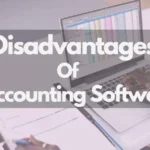Concept of Non-Trading Concerns
There are many concerns that have the main motto of rendering services instead of making profits. Such concerns are call non-trading of non-profit-making concerns. Examples of such concerns include different types of clubs, schools, colleges, hospitals, libraries, Guthies, professional associations, and unions.

These concerns render services to their members and to the public. For example, a sports club provides sports and other recreational services to its members as well as to the public. Similarly, schools and colleges provide education to students. Hospitals provide medical treatment and services to ailing people. Since non-trading concerns are different from profit-making concerns in their purpose, the preparation of final accounts of these two types of concerns is a little bit different from each other.
Meaning of Non-Trading concerns
A non-trading concern is generally a voluntary association created on a non-profit basis for the purpose of rendering different sorts of service to its members and the general public. Unlike profit concerns, it does not have capital. Rather, it receives grants, donations, endowments, etc. for its capital funds and thus there are no owners or shareholders of this concern. Similarly, it receives annual fees from its members for meeting its annual expenses. Since a non-trading concern is a public institution, it has to maintain its books of accounts and prepare annual statements to the general body of its members.
Accounts of Non- Trading Concern
A non-trading concern should prepare and maintain systematic books of account to provide necessary information to its members about its financial transactions. Thus, it prepares different accounts such as receipts and payments account, income and expenditure account, and the balance sheet as its final account. The receipts and payments account shows the summary of cash transactions made by the concern. The income and expenditure account shows are annual incomes generated and expenses incurred by the concern in an accounting period. It also helps to know whether its current incomes are sufficient to meet its current expenditures. The balance sheet is prepared to know the financial position, besides providing information about the proper utilization of grants, donations, and so on.
Important Topic: Subsidiary Book




